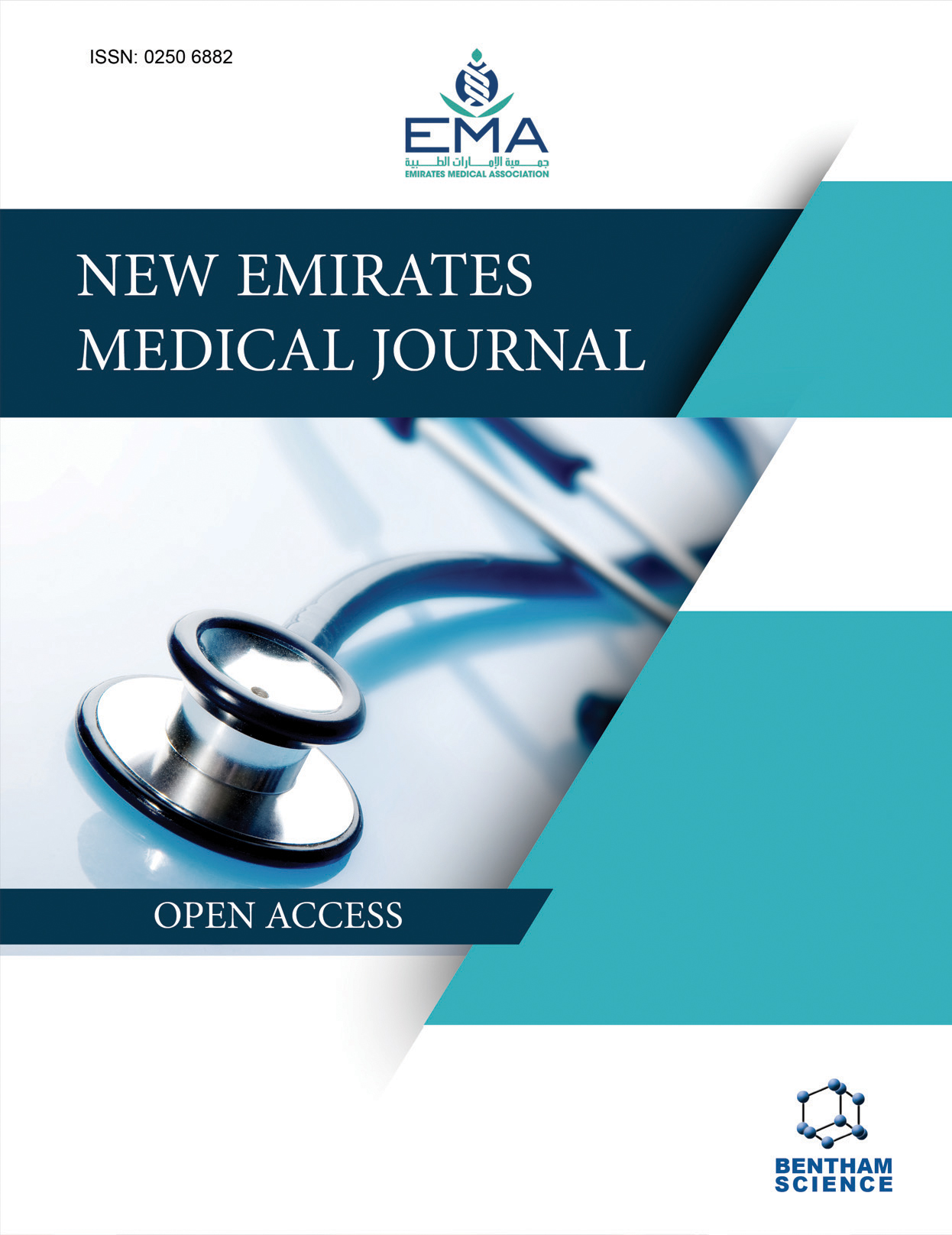-
oa Duchenne Muscular Dystrophy Management and Treatment Access Challenges: Case Report
- Source: New Emirates Medical Journal, Volume 4, Issue 1, Mar 2023, e050123212392
-
- 16 Apr 2022
- 29 Nov 2022
- 03 May 2023
Abstract
Duchenne muscular dystrophy (DMD) is a rare neuromuscular disease that causes muscle weakness with respiratory and cardiac complications. International DMD standard of care guidelines exist, but their implementation and DMD treatment access in the Middle East have historically been challenging. This report highlights sub-optimal management of DMD in the Middle East together with recommendations for best practice, and the first reported use of ataluren, a mutation-specific treatment for nonsense mutation DMD (nmDMD), in this region.
The management of two patients in the United Arab Emirates diagnosed with nmDMD is described. Under multidisciplinary care, both patients were treated with corticosteroids as per international DMD standard of care guidelines. Although both patients presented with typical DMD signs/symptoms, one received a genetic diagnosis and treatment relatively late owing to low awareness of the early signs and symptoms of DMD among physicians in the region; delayed genetic diagnosis of DMD hinders early initiation of mutation-specific treatments such as ataluren. Moreover, this patient demonstrated low adherence to the treatment plan, potentially resulting from low DMD awareness and poor understanding of the benefit-risk of corticosteroids in the patient’s family. In contrast, the other patient was genetically diagnosed early at 25 months, was administered ataluren whilst ambulatory, and demonstrated high adherence to the management plan. Limited expertise in performing motor function assessments and complications with medical insurance for ataluren in the region created additional obstacles in the management of both patients.
The contrasting experiences of these patients highlight the high variability of diagnosis and management of DMD in the Middle East. There is a need in the region to boost disease education for both public and professional communities, establish local DMD networks and guidelines, and improve access to treatments to improve the quality of care that patients with DMD receive.


